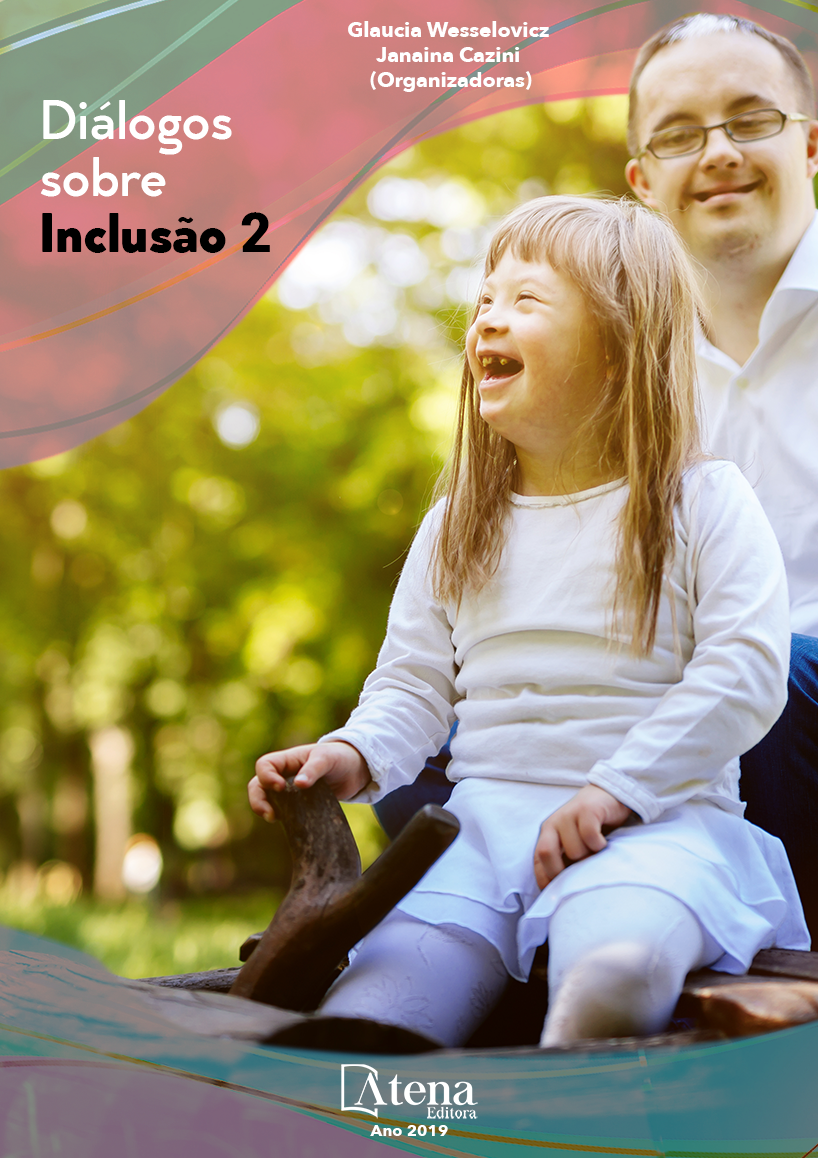
EDUCAÇÃO NO BRASIL: O USO DAS CONCEPÇÕES INCLUSIVAS E AS PROPOSTAS INTERDISCIPLINARES DENTRO DA EDUCAÇÃO INFANTIL
Este artigo busca apresentar, com
apoio da literatura, elementos que possam
subsidiar uma reflexão crítica acerca dos
princípios históricos da educação brasileira,
o uso das propostas interdisciplinares e as
concepções inclusivas dentro da educação
infantil, ressaltando algumas características
que permeiam a ação inclusiva com base nos
termos legais, descortinando o tradicionalismo
histórico da educação no Brasil e trazendo novos
horizontes como proposta de autoconhecimento
de acordo com políticas educacionais inclusivas
e interdisciplinares. Tomou-se como referenciais
teóricos para o estudo dos temas relacionados
ao tema do trabalho: BRASIL, (1971,1988,
1996); BUENO, (1999); CERVO, (1983); CURY,
(1997); DECLARAÇÃO DE SALAMANCA,
(1994); FAZENDA, (1992) FRANÇA, (1952);
GOMES, (2006); GONÇALVES, (1998);
JAPIASSU, (1976); MORIN, (2000); PCN,
(1999); SASSAKI, (1997) VILELA, (2003). Desta
forma, este artigo justificou-se com base nos
pressupostos legalistas presentes na literatura
da história da educação, a interdisciplinaridade
e inclusão na educação infantil. O objetivo
geral do artigo em questão busca mostrar de
forma sucinta os aspectos que norteiam as
propostas educacionais históricas e interdisciplinares em ambientes inclusivos dentro
da educação infantil. Entende-se, que a educação inclusiva em sua essência pode
representar um caminho significativo para a gestão da educação e principalmente
na educação infantil, que necessita de práticas e propostas interdisciplinares que
trabalhem a cultura de saberes individuais e coletivos das crianças que devem ser
respeitadas em suas particularidades, pois se encontram em constante aprimoramento.
EDUCAÇÃO NO BRASIL: O USO DAS CONCEPÇÕES INCLUSIVAS E AS PROPOSTAS INTERDISCIPLINARES DENTRO DA EDUCAÇÃO INFANTIL
-
DOI: 10.22533/at.ed.63719280513
-
Palavras-chave: Princípios históricos da educação brasileira; Propostas Interdisciplinares; Concepções Inclusivas; Educação Infantil.
-
Keywords: Historical principles of Brazilian education; Interdisciplinary Proposals; Inclusive Concepts; Child education
-
Abstract:
This article aims to present, with the support of the literature, elements
that can subsidize a critical reflection on the historical principles of Brazilian education,
the use of interdisciplinary proposals and inclusive conceptions within early childhood
education, highlighting some characteristics that permeate inclusive action based on
legal terms, unveiling the historical traditionalism of education in Brazil and bringing
new horizons as a proposal of self-knowledge in accordance with inclusive and
interdisciplinary educational policies. It was taken as theoretical references for the study
of the themes related to the work theme: BRAZIL, (1971, 1988, 1996); GOOD, (1999);
CERVO, (1983); CURY, (1997); DECLARATION OF SALAMANCA, (1994); FAZENDA,
(1992) FRANCE, (1952); GOMES, (2006); GONÇALVES, (1998); JAPIASSU, (1976);
MORIN, (2000); PCN, (1999); SASSAKI, (1997) VILELA, (2003). Thus, this article
was justified on the basis of legalistic assumptions in the literature of the history of
education, interdisciplinarity and inclusion in early childhood education. The general
objective of the article in question seeks to show succinctly the aspects that guide the
historical and interdisciplinary educational proposals in inclusive environments within
the infantile education. It is understood that inclusive education in its essence can
represent a significant path for the management of education and especially in the
education of children, which requires interdisciplinary practices and proposals that work
the culture of individual and collective knowledge of children that must be respected in
their particularities, since they are constantly improving.
-
Número de páginas: 15
- Samilly dos Santos Bernardo Luis
- Joel Nunes de Farias
- Aldair Viana Silva de Alcaniz
- Nadjeana Ramalho da Silva
- Elaine Cristina Meireles Silva
- Elenith Jussiêr de Lima Silva
- Ivanildo Severino da Silva
- Hosana Souza de Farias
- LUANDSON LUIS DA SILVA


